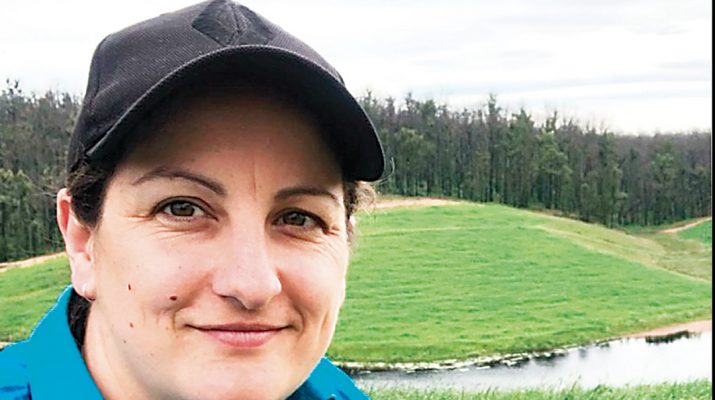IN three short years, the volunteer, farmer-operated Gippsland Agricultural Group (GAgG) has expanded its work: from a four-hectare cereal variety trial to more than 100 hectares and numerous trials, generating a vast amount of momentum and excitement in its ranks.
The Spring Field Day showcased everything from the affect chicken litter can have on soil, to worm burdens in sheep, fertiliser options and fodder options for livestock. Plus, some much-needed socialisation for local producers cemented the group’s role as an agricultural hub.
GAgG general manager, Jen Smith, said the group had progressed greatly. “We’ve come a long way in a short time, and we’re about much more than cropping,” Ms Smith said.
“We included each of our five pillars – pastures, fodder, soil, livestock and having a healthy farming community.
“The day started with a session on genomics, which was really well received, and ended with one of the world’s most eminent climate scientists, Dr Richard Eckard, speaking about carbon.”
Ms Smith said the field day had the latest in both sciences delivered in practical and actionable ways.
“Our speakers were significant and the support from industry, government and the East Gippsland and Wellington shires was fantastic,” she said.
Genomics speaker, Daniel Abernethy, said the technology was a “fundamental game changer”.
“We want to see variation within a population; if you can see it, you can exploit it,” he said.
“You pick the best, but the concept is being able to find it very quickly.”
The day attracted farmers of all types and from different places across Gippsland.
For Wy Yung’s Sekove Koroisamanunu, a relatively new cattle producer attending his first GAgG field day, his interest was taken by the ryegrass demonstration, as he wants to work on his soils and pasture production. Mr Koroisamanunu said he was “learning lots”.
The ryegrass demonstration discussion was led by agronomist Nicole Frost, who coincidentally had recently taken soil tests at Sekove’s property.
Hillside farmer Kane Stewart also asked questions on ryegrass varieties, trying to find the variety most suited to his operation.
Assisted by Tim Brown of AGF Seeds, the group discussed the ‘blind’ ryegrass trials, time of sowing and heading dates of the GAgG trial, as well as the forage crop demonstration.
It was interesting to see the saviour of the dry years, barley, clearly not enjoying the wet conditions and already laying over in the plots.
Another area that sparked discussion was the pit dug in the chicken litter/compost paddock, known as the Soil Amelioration Demonstration, run in conjunction with DELWP.
It distinctly showed how root systems could penetrate deeper into the clay below the topsoil, as did the buried chicken litter.
GAgG chief executive officer, Trevor Caithness, said he was pleased to see so many new faces at the Gippsland Research Farm.
“The fact we could showcase nearly every element of dryland ag was excellent,” Mr Caithness said.”And the energy new members bring to an organisation is wonderful.”
It was the group’s fourth spring field day; the first was where a few farmers stood around a paddock in 2019; a virtual tour in 2020; and moving in groups of 20 to meet COVID regulations in 2021.
This year’s spring days attracted 130 registrations and included trade stalls, as well as supplying a free lunch where all attendees could relax and chat together.
GAgG collaborates with all sorts of organisations, including the Gippsland Sheep Breeders Association, who had its wether trial sheep in the yards for perusal, as well as the East Gippsland Farm Dog Group (EGFDG).
EGFDG members finished the day with sheepdog trial demonstrations and an announcement of a partnership between the group and GAgG.
EGFDG president, Andrew Whelan, announced the group was excited to partner with GAgG and call the Gippsland Research Farm home, and was also looking forward to using the research centre when it was built in 2023.

